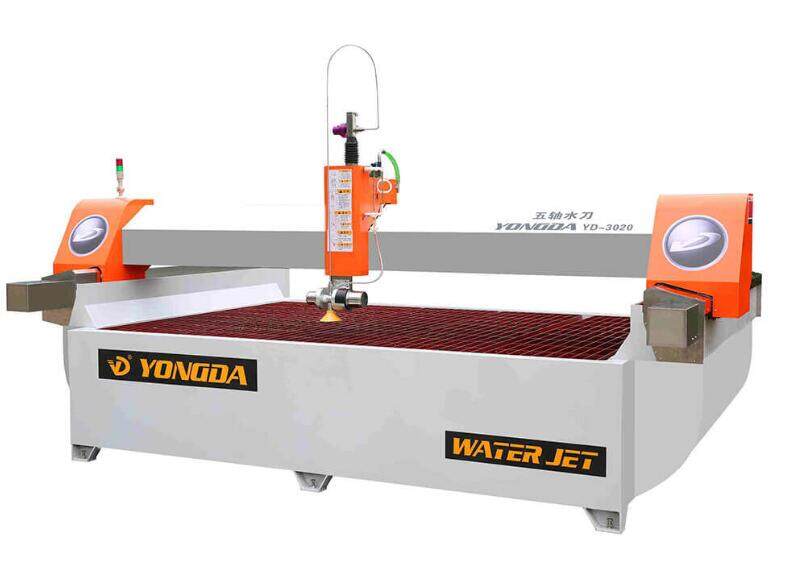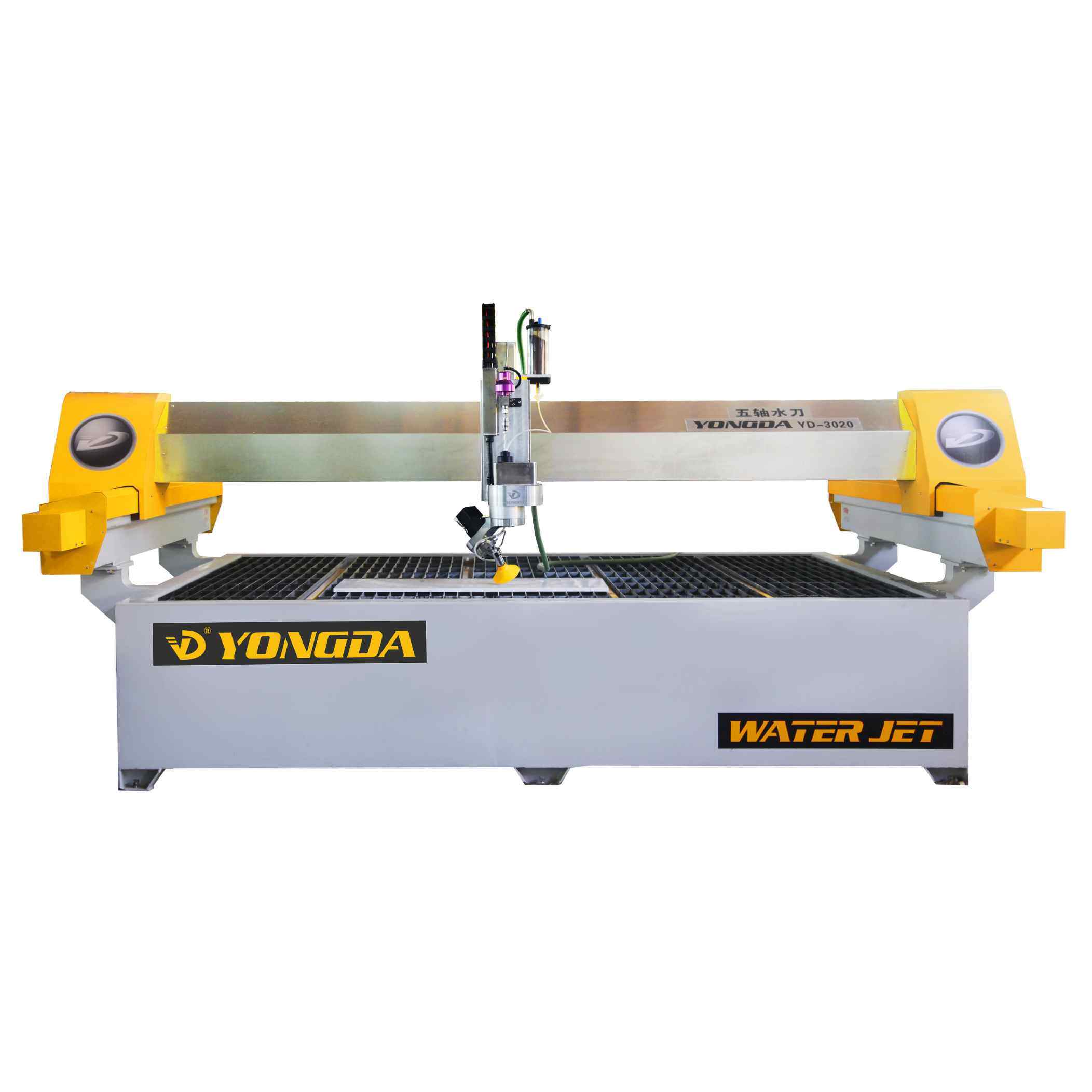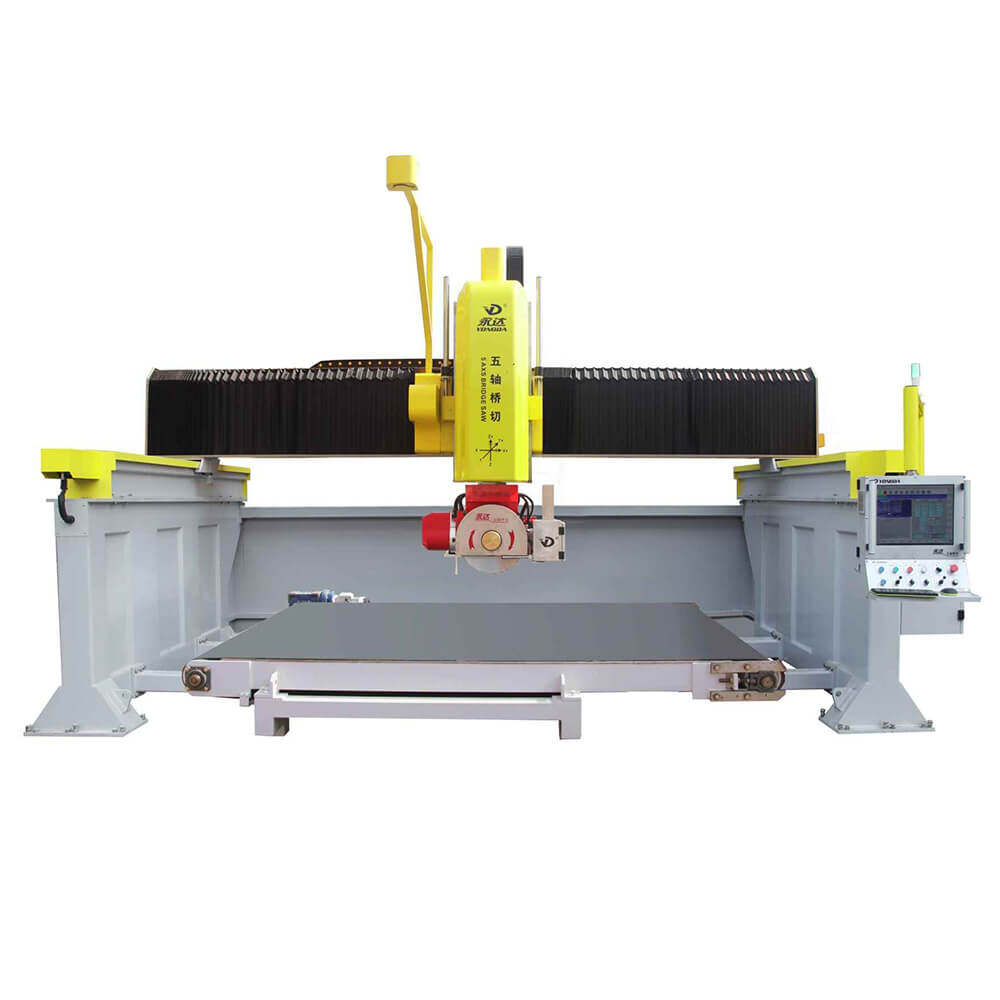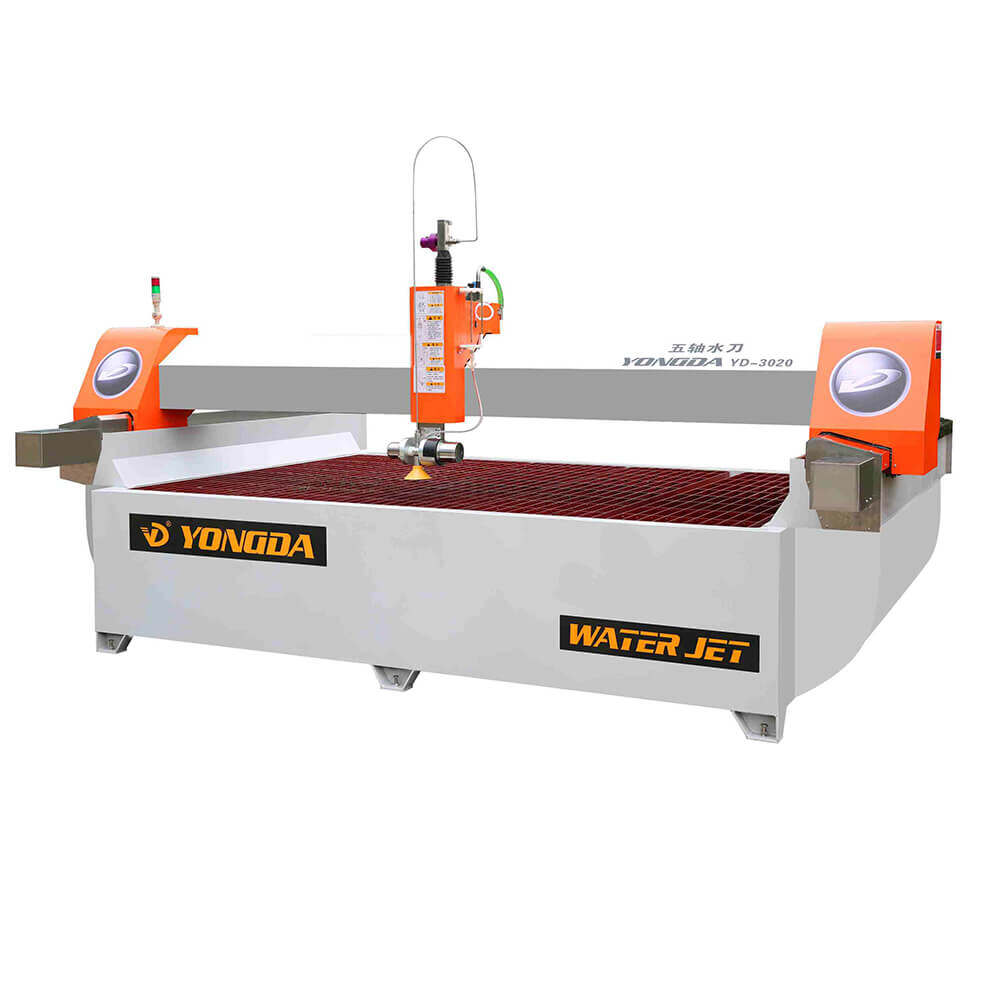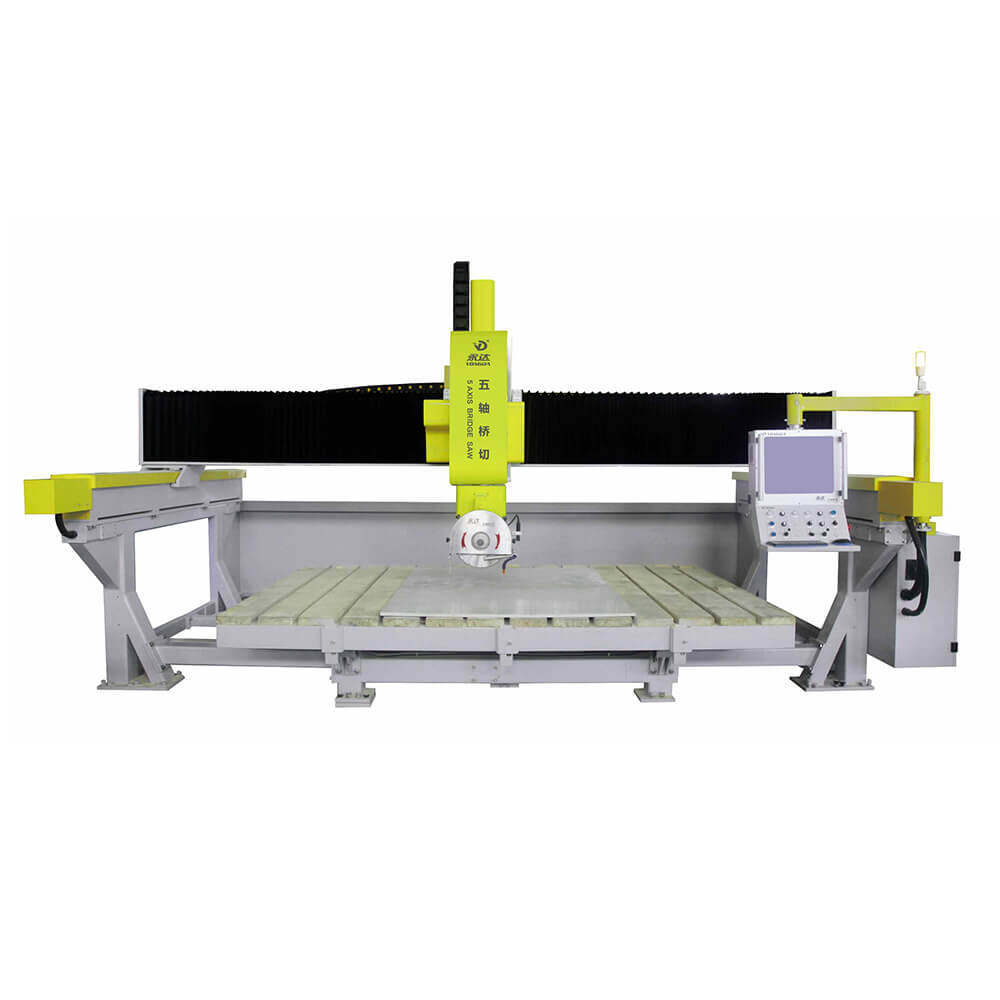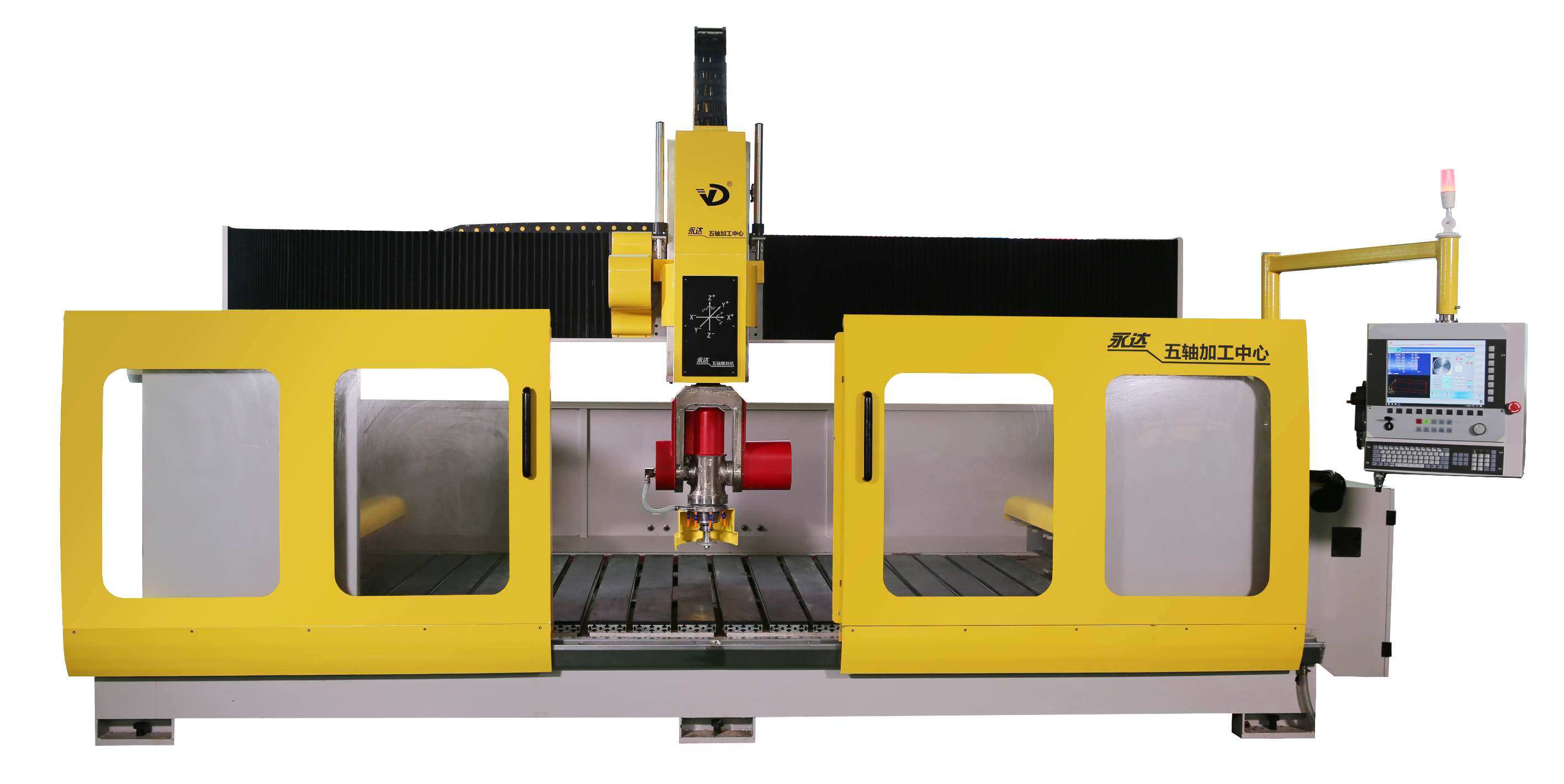In the world of home renovation and construction, the kitchen countertop cutting machine has become an indispensable tool for fabricators and contractors alike. These machines, often CNC (Computer Numerical Control) or waterjet cutting systems, offer unparalleled precision and efficiency in crafting countertops from various materials such as granite, quartz, and marble. This article explores the various aspects of kitchen countertop cutting machines, including their technology, advantages, and applications.
Technology Behind Kitchen Countertop Cutting Machines
Kitchen countertop cutting machines utilize advanced technologies to ensure high-quality cuts. The most common types include:
CNC Machines: These machines operate using computer programming to control the movement of the cutting tools. They are capable of executing complex designs with high precision, making them ideal for custom countertop fabrication. CNC machines can perform various tasks such as cutting, milling, and engraving, allowing for intricate patterns and shapes.
Waterjet Cutting Machines: These machines use high-pressure water mixed with abrasive materials to cut through hard surfaces like granite and marble. The waterjet method is particularly advantageous as it does not generate heat during the cutting process, preventing any thermal damage to the stone. This technology is perfect for achieving clean edges and detailed cutouts for sinks and fixtures.
Both technologies have changed countertop fabrication, providing consistent results that meet the exact specifications required by clients.
Advantages of Using Kitchen Countertop Cutting Machines
The benefits of employing kitchen countertop cutting machines are numerous:
Precision and Accuracy: One of the standout features of these machines is their ability to deliver precise cuts. CNC machines can achieve tolerances as tight as 0.001 inches, ensuring that every piece fits perfectly in its designated space. This level of accuracy minimizes waste and enhances the overall quality of the finished product.
Efficiency: Automated cutting processes significantly reduce production time compared to manual methods. Tasks that once took hours can now be completed in minutes, allowing businesses to increase their output and profitability.
Versatility: Kitchen countertop cutting machines can handle a wide range of materials beyond just granite and marble. They are also effective on quartz, limestone, and even engineered stones, making them versatile tools for fabricators.
Safety: By automating the cutting process, these machines reduce the risk of injuries associated with manual cutting methods. Operators are less exposed to sharp tools and heavy materials, contributing to a safer work environment.
Applications in Countertop Fabrication
Kitchen countertop cutting machines are widely used in various applications:
Custom Countertops: With the ability to create unique designs tailored to client specifications, these machines are essential for custom kitchen renovations. Fabricators can easily produce intricate shapes that enhance the aesthetic appeal of any kitchen.
Mass Production: For companies producing countertops in bulk, these machines streamline production processes. They can efficiently cut multiple slabs simultaneously without sacrificing quality.
Repair and Renovation: In addition to new installations, countertop cutting machines are valuable for repairing or replacing existing surfaces. They can accurately cut replacement pieces that seamlessly integrate with older installations.
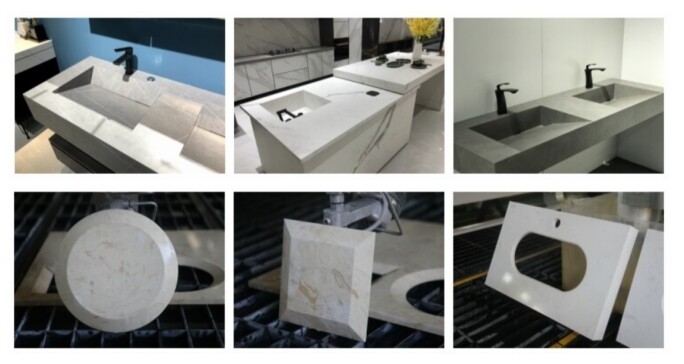
Future Trends in Kitchen Countertop Cutting Technology
As technology continues to advance, several trends are emerging in the field of kitchen countertop cutting machines:
Increased Automation: Future models will likely incorporate even more automation features, reducing human intervention further and increasing efficiency.
Sustainability: With growing environmental concerns, manufacturers are focusing on creating machines that minimize waste during the cutting process. This includes optimizing material usage through advanced nesting software that arranges cuts to maximize yield.
Integration with Design Software: As design software becomes more sophisticated, integration with countertop cutting machines will allow for seamless transitions from design to fabrication. This will enable designers to visualize projects in real time and make adjustments before production begins.
Smart Technology: The incorporation of IoT (Internet of Things) technology could lead to smarter machines that provide real-time data on performance metrics, maintenance needs, and operational efficiency.
In conclusion, kitchen countertop cutting machines are vital tools in modern fabrication processes. Their precision, efficiency, versatility, and safety features make them essential for both custom projects and mass production. Whether you are a contractor looking to enhance your offerings or a homeowner considering a renovation project, understanding the benefits and applications of kitchen countertop cutting machines is crucial in making informed decisions for your space. As technology evolves, these machines will continue to improve, offering even greater capabilities that will shape the future of countertop manufacturing.


